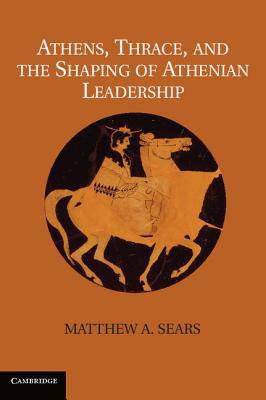
- Afhalen na 1 uur in een winkel met voorraad
- Gratis thuislevering in België vanaf € 30
- Ruim aanbod met 7 miljoen producten
- Afhalen na 1 uur in een winkel met voorraad
- Gratis thuislevering in België vanaf € 30
- Ruim aanbod met 7 miljoen producten
Zoeken
Athens, Thrace, and the Shaping of Athenian Leadership. Matthew A. Sears
Matthew A Sears
Hardcover | Engels
€ 184,95
+ 369 punten
Omschrijving
From the mid-sixth to the mid-fourth century BCE a nexus of connections to Thrace defined the careers of several of Athens' most prominent figures, including Pisistratus, Miltiades, Alcibiades, and Iphicrates. This book explores the importance of Thrace to these individuals and its resulting significance in the political, cultural, and social history of Athens. Thrace was vitally important for Athens thanks to its natural resources and access to strategic waterways, which were essential to a maritime empire, and connections to the area conferred wealth and military influence on certain Athenians and offered them a refuge if they faced political persecution at home. However, Thrace's importance to prominent individuals transcended politics: its culture was also an important draw. Thrace was a world free of Athenian political, social, and cultural constraints - one that bore a striking resemblance to the world of Homeric epic.
Specificaties
Betrokkenen
- Auteur(s):
- Uitgeverij:
Inhoud
- Aantal bladzijden:
- 341
- Taal:
- Engels
Eigenschappen
- Productcode (EAN):
- 9781107030534
- Verschijningsdatum:
- 25/03/2013
- Uitvoering:
- Hardcover
- Formaat:
- Genaaid
- Afmetingen:
- 157 mm x 229 mm
- Gewicht:
- 680 g

Alleen bij Standaard Boekhandel
+ 369 punten op je klantenkaart van Standaard Boekhandel
Beoordelingen
We publiceren alleen reviews die voldoen aan de voorwaarden voor reviews. Bekijk onze voorwaarden voor reviews.







